
Nov 18, 2025 • 9 min read
Dazzling Brazil has a massive footprint – pick the top spots for your itinerary, from steamy rainforests and tropical savannas to exciting cities.

Nov 18, 2025 • 9 min read
Dazzling Brazil has a massive footprint – pick the top spots for your itinerary, from steamy rainforests and tropical savannas to exciting cities.

Nov 17, 2025 • 8 min read
Whether you want to hear nuns singing at daybreak, climb wildflower-stippled mountains or view contemporary art, you'll find much to do in Salzburg.

Nov 17, 2025 • 5 min read
Skiing in North America is all about swooping runs and some of the fluffiest snow on the planet. Here’s our guide to the top resorts for this season.

Nov 17, 2025 • 7 min read
Find welcome respite from winter's long nights and biting cold at 10 sunny destinations in Europe’s southern reaches.

Nov 17, 2025 • 14 min read
Explore Africa's southernmost country through its cuisine, history and natural beauty.
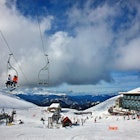
Nov 17, 2025 • 7 min read
Pack your bags and wax your planks. These ski resorts are excellent global travel destinations when the snow flies.

Nov 17, 2025 • 12 min read
It's nearly impossible to log all Rome has to offer in a single trip. Let this list be your starting point to enjoying every inch of the city.

Nov 17, 2025 • 9 min read
From logistical concerns to social mores to personal safety, here’s what you need to know before you next trip to Kyrgyzstan.

Nov 17, 2025 • 7 min read
Glacier-fed rivers, lush green valleys, isolated yurt camps and turquoise mountain lakes: hiking in Kyrgyzstan does not disappoint.
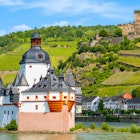
Nov 17, 2025 • 6 min read
For fairytale forests, medieval villages and bohemian culture, come to Germany. Here are the top spots to check out.
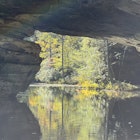
Nov 17, 2025 • 9 min read
Each year the Lonely Planet staff experiences so much joy in their own travels – resetting, savoring growth and reawakening our wonder at the world.

Nov 16, 2025 • 10 min read
Explore Ho Chi Minh City one neighborhood at a time with our guide to experiencing the city's best parts.

Nov 16, 2025 • 10 min read
Plan your travels around Vietnam with this guide to transport options, tickets and routes.
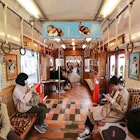
Nov 16, 2025 • 8 min read
In Japan, trains allow for a wide spectrum of experiences – from slow travel through rural towns to bullet trains between cities.

Nov 15, 2025 • 7 min read
A homestay in Nepal is more than a place to crash for a night. You are truly a guest, one who participates in daily activities and gets home-cooked meals.

Nov 15, 2025 • 9 min read
Fine food and French architecture set the mood in Ho Chi Minh City, Vietnam's southern metropolis. Here are the 10 best things to do in the former Saigon.

Nov 15, 2025 • 8 min read
From the karst islands of Halong Bay to the dunes of Mui Ne, Vietnam serves up stunning landscapes in every direction. Here are the best natural wonders.
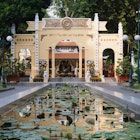
Nov 15, 2025 • 8 min read
Ho Chi Minh City is one of Southeast Asia’s top destinations for budget-friendly enjoyment. Here's how to spend your time while saving your money.

Nov 14, 2025 • 9 min read
Learn the unspoken rules of daily life in Jamaica – plus practical tips for planning, transportation and safety – before visiting this Caribbean island.

Nov 14, 2025 • 6 min read
Go outside and play or stay active indoors with these top activities in the Massachusetts capital.
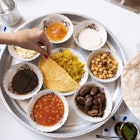
Nov 14, 2025 • 2 min read
The majestic minarets and vibrant souks, ancient pearl-diving and glimpses of a historic trading hub – these spaces are packed with the flavors of Old Dubai.
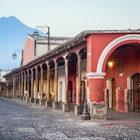
Nov 14, 2025 • 12 min read
Antigua continually melts visitors’ hearts, which has made it one of Guatemala’s most-visited spots.